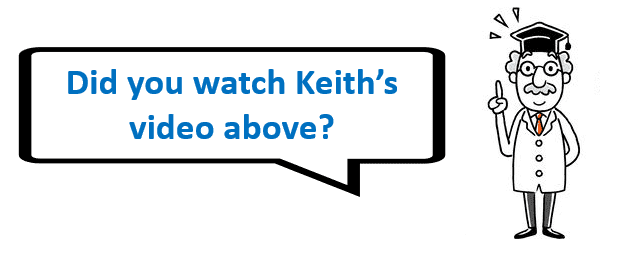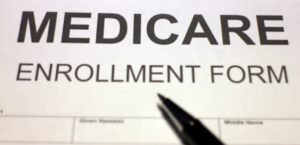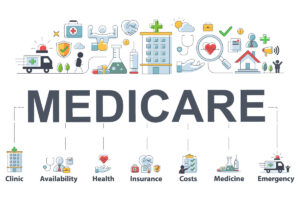Medicare is a critical healthcare system designed to provide coverage to millions of Americans. However, like any other service that relies on sensitive personal information, Medicare is vulnerable to data breaches.
More than any other time, cybersecurity threats are on the rise, and criminals are continuously seeking new ways to exploit weaknesses in the system. In this piece, we examine how to surmount medicare data breach.

This piece will help you identify potential Medicare data breaches and provide steps regarding how to protect yourself and your loved ones. Let’s get started.
Types of Medicare Data Breaches
Medicare data breaches can occur in various forms, including unauthorized access, data theft, and data leakage. They often occur in the following forms:
- Cyberattacks: Hackers usually target computer systems or networks to gain unauthorized access to sensitive information, including Medicare data.
- Phishing Attacks: Fraudsters use deceptive emails or text messages to trick recipients into revealing personal information, such as Medicare numbers or passwords.
- Insider Threats: Employees or contractors with access to Medicare data may intentionally or accidentally leak, misuse, or steal sensitive information.
- Physical Theft: Physical documents, computer hardware, or portable storage devices containing Medicare data may be stolen.
How to Recognize the Signs of a Data Breach
In order to avoid being a victim of circumstance, you must be able to identify the signs of a Medicare data breach. These often include:
- Suspicious Activity: Always keep an eye out for any unusual activity, such as unauthorized transactions or unfamiliar medical services billed to your Medicare account.
This could indicate that your Medicare information has been compromised.
- Data Breach Notifications: If a healthcare provider, insurer, or any organization that holds your Medicare data suffers a breach, they are required by law to notify you. So, pay close attention to these notifications.
- Unexplained Credit Report Changes: Regularly check your credit report for any unexplained changes, as this could be a sign that your personal information has been misused.
- Unsolicited Contact: Be wary of unsolicited phone calls, emails, or text messages from individuals claiming to represent Medicare or another healthcare provider. Scammers may try to extract personal information from you under false pretenses.
How to Protect Yourself from Medicare Data Breaches
Having a strong defense strategy can significantly reduce the risk of a Medicare data breach. Here are some steps to protect yourself and your loved ones:
- Create Strong Passwords: Use unique and complex passwords for all your online accounts, including those related to Medicare. Regularly update your passwords and do not share them with anyone.
- Apply Two-Factor Authentication: Always enable two-factor authentication (2FA) on your accounts. 2FA adds an extra layer of security by requiring a second form of verification, such as a code sent to your phone, in addition to your password.
- Be Cautious with Emails: Never click on links or download attachments from unknown or suspicious sources. This can help prevent phishing attacks and protect your personal information.
- Monitor Your Medicare Account: Regularly check your Medicare account for any suspicious activity. If you notice any discrepancies, report them immediately to Medicare.
- Protect Your Medicare Card: Keep your Medicare card safe and secure. Do not carry it with you unless necessary and never share your Medicare number with anyone who does not need it for legitimate purposes.
Consequences of a Medicare Data Breach
A Medicare data breach could have serious consequences for both individuals and healthcare providers, including:
- Identity Theft: Cybercriminals can use stolen Medicare information to impersonate individuals, obtain medical services or prescriptions, and potentially cause significant harm.
- Financial Fraud: Fraudsters can use stolen Medicare data to make unauthorized transactions, such as submitting false insurance claims, draining bank accounts, or opening new lines of credit.
- Loss of Trust: A data breach can erode trust between healthcare providers and patients, potentially leading to a decline in the use of healthcare services.
- Legal and Financial Ramifications: Healthcare providers responsible for data breaches may face legal penalties, fines, and loss of business.
Way Forward
If you enrolled in a medicare program and suspected that your Medicare information has been compromised, quickly contact your service provider to report any suspicious activity on your account.
Meanwhile, MedicareOnVideo provides authoritative guidance for individuals enrolled in any medicare or supplement plans under the auspices of HealthPlan65.
For more information, watch Medicare Video titled ”Medicare Data Breach – Security Alert!”
You can contact us directly at 1-877-855-3484, as well as get our free ebook on Medicare titled “Medicare Made CLEAR,” which contains up-to-date information on all areas of Medicare coverage.
Do stay safe out there!!!















